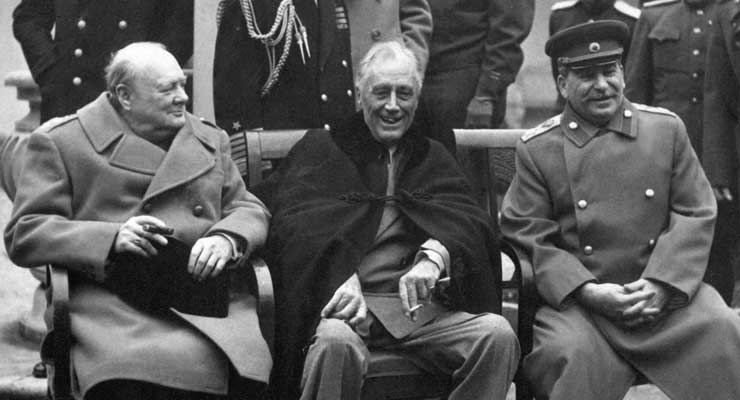
A new book, The Phoney Victory, written by Peter Hitchens, presents the idea that the decision of the British government to declare war against Germany in September 1939 was the wrong one, at least when it comes to its timing. Hitchens’ analysis is strengthened by the idea that the “victory” over Germany in 1945 left the country in a state of economic bankruptcy. Is he right?
Hitchens’ Basic Idea
By 1945, the United Kingdom had many of the characteristics of a defeated nation, due to the significant human and material resources that were committed to the fight against the Axis. World War Two is framed within the narrative of the “Good War” against a terrible enemy. However, in Hitchens’ opinion, the declaration of war prompted the Nazi regime to engage in the policy of extermination in the countries that it conquered after 1939.
 Hitchens questions whether the country was prepared to fight a war against Germany in 1939. He also states that there is no conclusive evidence that Germany was planning to invade the United Kingdom in 1940. Furthermore, Hitchens proceeds to demystify a number of commonly held assumptions regarding the British participation in World War Two. The author argues that the United Kingdom was not forced into war by Nazi Germany. At the same time, Hitchens rightly states that Poland was not a “bastion of democracy,” as it was governed by an authoritarian and anti-Semitic regime.
Hitchens questions whether the country was prepared to fight a war against Germany in 1939. He also states that there is no conclusive evidence that Germany was planning to invade the United Kingdom in 1940. Furthermore, Hitchens proceeds to demystify a number of commonly held assumptions regarding the British participation in World War Two. The author argues that the United Kingdom was not forced into war by Nazi Germany. At the same time, Hitchens rightly states that Poland was not a “bastion of democracy,” as it was governed by an authoritarian and anti-Semitic regime.
This state of affairs does not given credence to the idea that the United Kingdom was fighting for democracy in Europe. The United Kingdom, according to Hitchens, did not enter the war in order to save the Jews. Chamberlain was not an appeaser, as seen in the increase in military expenditure under his tenure. Hitchens also seeks to disprove the idea of “standalone” Britain and the “special relationship” with the United States.
These arguments are used to link the participation of the United Kingdom in World War Two to the country’s geopolitical decline in the aftermath of the conflagration. World War Two paved the way for further European integration, described by Hitchens as “the continuation of Germany by other means” and the disintegration of the old social order in the United Kingdom.
A Critique
Peter Hitchens is, by his own admission, a “scribbler” and not a historian. He omits to broach the geopolitical implications that could have emerged from not declaring war against Nazi Germany in 1939. Giving Nazi Germany a free hand in continental Europe would have meant a larger demotion of the geopolitical position of the United Kingdom than the one that the country suffered as a result of the outcome of World War Two.
The idea of European integration as “the continuation of Germany” proposed by Hitchens is in line with the sense of ontological separation vis-à-vis the idea of Europe that permeates the scholarly and non-scholarly treatment of World War Two in the United Kingdom. The notion of European integration (with the European Union as the embodiment of that idea) is seen by Hitchens as something of a sinister nature.
However, the outcome of World War Two created the end of the internal balance of power in Western Europe, which is now being threatened, to a certain extent, by the exiting of the United Kingdom from the European Union. The period of peace and prosperity that emerged from the ashes of World War Two was due to the participation of the United Kingdom in World War Two, which prompted the reformation of the political culture in Germany and the demarcation of its geopolitical claims of Germany to the commercial realm.
There is evidence that suggests that United Kingdom (and France, for that matter) could have prevented the onset of World War Two by halting Hitler’s expansionist drive in 1938. Both countries had considerable military superiority over Germany at that time and would have been able to liaise with opposition elements within that country in order to bring down Hitler.
My conclusion
The Phoney Victory raises some interesting propositions regarding the participation of the United Kingdom in World War Two. However, it fails to consider the alternative geopolitical outcome that would have been generated by the lack of willingness to fight Hitler in 1939: an international order and commercial system dictated by the needs and interests of the Axis powers and the retreat of the idea of freedom and democracy as subjects of international relations.
You can click here to find the book “The Phoney Victory: The World War II Illusion” directly at its publisher’s website, I.B.Tauris.
Leave a Reply